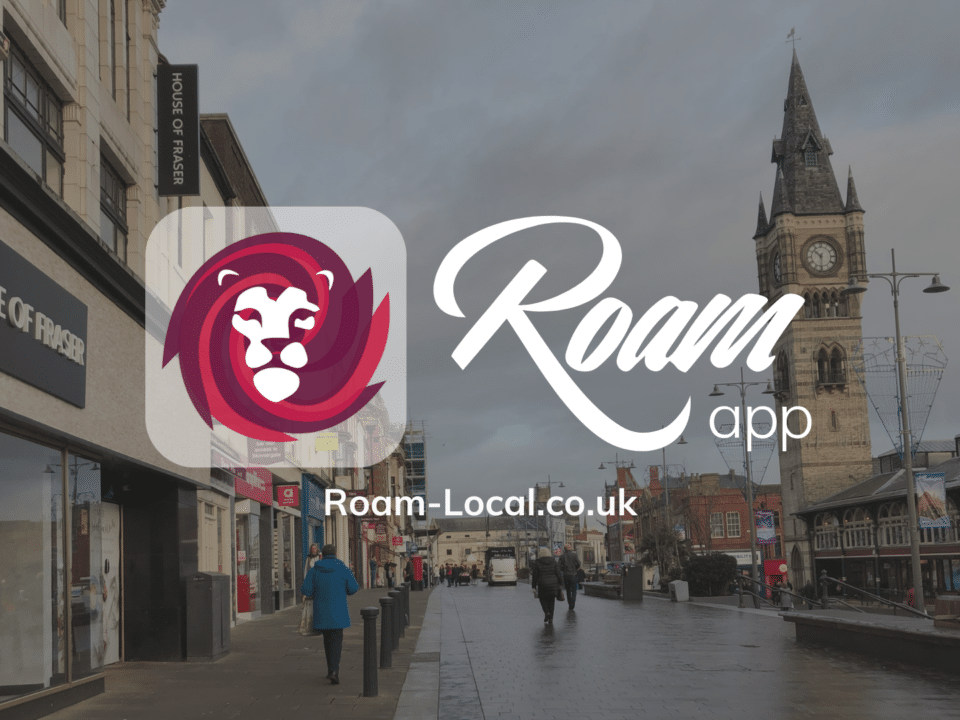
Are You Being Covid-19 Clever?
August 11, 2020
5 Reasons Why Having an Online Presence Is Essential for Your Small Business
August 28, 2020Retail expert, high-street champion and Institute of Place Management Fellow Graham Soult argues that town centres are far from dead – and that digital technology like Roam plays a key role in helping them thrive.
Based on a glance at the news headlines, it would be easy to picture the typical British high street as a barren wasteland, with Amazon delivery drivers providing the only signs of life.
For sure, times are tough, with coronavirus accelerating some of the trends that were already underway: the steady growth of online retail; big names trimming their bloated store estates; and, amid all this, a widespread recognition, by industry leaders from the High Streets Task Force to Bill Grimsey, that town centres will need to be “redefined” and “transformed” with a more diverse range of uses in order to succeed.
Evolving, not dying
Nevertheless, the pervasive narrative that the high street is “dying” is a false, or certainly simplistic, one. Rather, it is evolving, just as it always has, albeit at a pace that exceeds anything we have experienced before. And amid any evolution, there are both existing exemplars, and ample opportunities.
Even now, for example, there are big-name retailers – such as B&M and Majestic Wine – reporting surging sales. Often, these are businesses that manage to combine great-value products and convenient store locations with a joined-up business model that successfully straddles bricks-and-mortar and online.
Indie pioneers
In many cases, though, it’s independent retailers who are showing the rest how it should be done. During lockdown, with travel restricted and all but essential retailers closed, most of us had little option but to “shop local”. For many, this was a revelation, as they embraced the opportunity to discover – or rediscover – the quality independent convenience stores, butchers, greengrocers and pet shops on their doorstep.
At the same time, small businesses across the country, including those not allowed to accept customers through the doors, really showed what they were made of: resilient, creative, and overwhelmingly digital in one form or another.
Even bricks-and-mortar retailers who had perhaps been reluctant to go online before were suddenly building customer relationships via Facebook, providing consultations over Zoom, or collaborating with other businesses to offer combined local delivery. There is a new generation of digital high street pioneers – and it’s genuinely exciting.
What’s more, customers seem to have acquired a taste for this way of shopping: of those who shopped local more often during lockdown, 80% intend to keep doing so, with smaller centres generally seeing footfall recover more quickly than bigger cities.

Roam as a high-street champion
This uptick in digital engagement during 2020 has been reflected in Roam’s fortunes too, which has seen not only an increase in consumers downloading the app, but also more and more businesses claiming and using their free listings to increase customer engagement and retention.
At the same time, a growing number of places around the country – including Chester-le-Street, Durham and Hartlepool, where I’m working with Roam’s Andrew Bartlett to help spread the word – are launching “Roam Local” campaigns, in partnership with local business and community groups, to celebrate the strength of those places’ high-street offer, and encourage traders, shoppers and visitors to embrace the Roam app.
Roam, of course, is not a new initiative – Andrew has been developing, nurturing and honing it for the last four years – but a platform that seeks to “provide every business with a platform of equal opportunity, where they can create a community of customers who truly love and believe in what they do” has never felt more timely. New features coming soon (which I’ve seen a sneak peek of!) will only enhance businesses’ ability to showcase what they offer, drive footfall, and lead by example.
In my work all over the UK, it can certainly sometimes be a challenge to convince less tech-savvy retailers to adopt digital tools. Facebook, for instance, is incredibly powerful and useful, but its complex interface – which seems to function differently depending on what device you’re using – as well as its requirement to have a linked personal profile, can act as barriers to some.
What I’ve always liked about Roam is not only the positive mission, vision and values that reflect Andrew’s own enthusiasm for the high street, but also the easy-to-use web management interface and the fact that Roam can effectively become a business’s own app – without needing a coding degree or an eye-watering budget.
Looking ahead with positivity
Talking to The Scotsman newspaper during lockdown, I argued that “independents are coming out of this in many ways as the winners, and elements of that will certainly sustain”. Three months on, having subsequently launched the Indie Durham City project on behalf of City of Durham Parish Council, I still believe that more than ever.
In Durham, and other similar places around the country, small retailers are winning business by giving shoppers what they want, often involving distinctive and quality products or services, combined with a top-notch customer experience – and, crucially, effective use of online tools to build awareness, engagement and loyalty.
As Andrew himself argued in a recent video, “What we’re saying with our Roam Local campaign is why look at digital as a problem – why not use it as a solution?”
No-one can deny there are challenges ahead, now more than ever. But if we can empower a generation of digital-savvy independents – in combination with repurposing places with a wider mix of housing, workspaces, leisure, culture and other uses, suited to each one’s unique character and circumstances – then our high streets surely have a positive and productive future.
Graham Soult is the founder and owner of retail consultancy CannyInsights.com, and regularly works in partnership with Roam to champion the digital high street.




